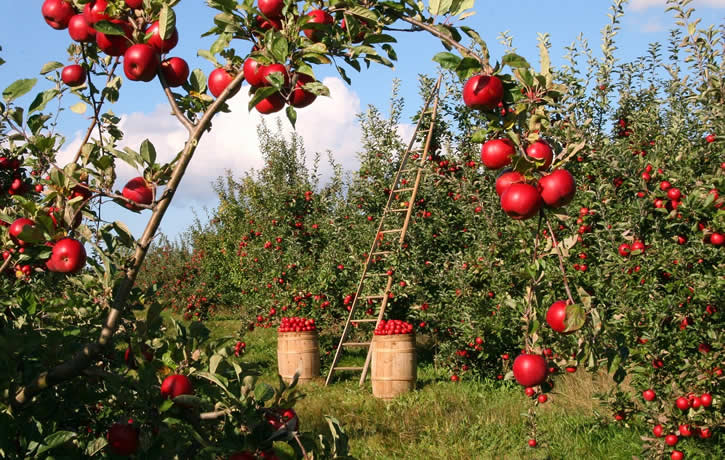Unraveling the Charm of French Expressions and How to Use them
Thursday December 07, 2023 | French Language | Posted by French Abroad
Learning French is not just about mastering grammar and French vocabulary; it’s about embracing the delightful nuances of expressions and idioms that bring the language to life. For (low) intermediate French learners, diving into the world of French expressions can add flair and authenticity to your language skills. Let’s explore some of the most important and amusing expressions that will make your French conversations more colorful.
Avoir le cafard (To have the cockroach):
This expression means to feel down or blue.
Translation: To be down in the dumps.
Example: “Depuis qu’il a perdu son travail, il a le cafard.”

Appuyer sur le champignon (To press on the mushroom):
It means to accelerate, especially while driving.
Translation: To step on the gas.
Example: “On va être en retard, appuie sur le champignon !”
Casser les oreilles (To break someone’s ears):
This expression refers to making loud and annoying noise.
Translation: To be very loud.
Example: “La musique de cette fête casse les oreilles.”
Poser un lapin (To put a rabbit):
It means to stand someone up, not showing up for a date or appointment.
Translation: To stand someone up.
Example: “Il m’a posé un lapin hier soir, je suis déçu(e).”
Avoir un poil dans la main (To have a hair in the hand):
This expression refers to someone who is lazy or avoids doing work.
Translation: To be lazy.
Example: “Il ne fait jamais rien, il a vraiment un poil dans la main.”
Tomber dans les pommes (To fall in the apples):
It means to faint or lose consciousness.
Translation: To faint.
Example: “Elle a vu le sang et est tombée dans les pommes.”

Avoir le melon (To have the melon):
This expression is used to describe someone who is arrogant or full of themselves.
Translation: To have a big ego.
Example: “Depuis sa promotion, il a vraiment le melon.”
C’est la fin des haricots (It’s the end of the beans):
It means that something is hopeless or the worst has happened.
Translation: It’s the last straw.
Example: “La voiture est en panne, c’est la fin des haricots.”
Mettre de l’eau dans son vin (To put water in one’s wine):
This expression suggests toning down one’s demands or expectations.
Translation: To lower one’s expectations.
Example: “Il faut mettre de l’eau dans son vin, tout ne peut pas être parfait.”
C’est la goutte d’eau qui fait déborder le vase (It’s the drop of water that makes the vase overflow):
This expression is used when a small event causes a much larger reaction.
Translation: It’s the straw that broke the camel’s back.
Example: “Son retard hier était la goutte d’eau qui fait déborder le vase.”
Avoir un coup de foudre (To have a lightning strike):
It means to fall in love at first sight.
Translation: To have a crush.
Example: “Quand il l’a vue, ça a été un vrai coup de foudre.”
Avoir le bras long (To have a long arm):
This expression refers to having influence or connections.
Translation: To have connections.
Example: “Il a pu obtenir des places rapidement, il a le bras long.”
Être dans les nuages (To be in the clouds):
It means to daydream or be absent-minded.
Translation: To have one’s head in the clouds.
Example: “Pendant la réunion, il était dans les nuages.”
Faire la grasse matinée (To do the fat morning):
This expression means to sleep in or have a long lie-in.
Translation: To sleep in.
Example: “C’est dimanche, je vais faire la grasse matinée.”
Avoir le feu sacré (To have the sacred fire):
Why Learn French in France?
Enrolling in a language course in France is an immersive experience that goes beyond textbooks and classroom settings. It’s an opportunity to absorb the language in its natural habitat, surrounded by native speakers, cultural nuances, and, of course, a plethora of amusing expressions. Learning French in France allows you to witness these idioms in action, adding depth and authenticity to your language journey.
It means to be highly motivated or passionate about something.
Translation: To have the fire in the belly.
Example: “Quand il parle de son projet, on voit qu’il a le feu sacré.”
These French expressions not only add charm to your French conversations but also provide insights into the cultural richness of the French language. For those embarking on a journey to learn French in France, mastering these idioms will not only enhance your language skills but also make you feel more connected to the daily life and expressions of native French speakers.
Language Course in France: Your Gateway to French Expressions
Imagine being able to effortlessly slip expressions like “avoir le cafard” into your conversations, seamlessly blending with locals and truly understanding the heartbeat of French culture. A language course in France is not just about conjugating verbs; it’s about absorbing the rhythm of everyday life, and these idioms are the notes that compose the melody of French expression.
Extra tips! Making the Most of Your French immersion in France
*Engage with Locals: Don’t shy away from conversations with locals. Use French expressions in context and observe how effortlessly they are woven into everyday speech.
*Participate in Cultural Activities: Joining cultural activities, whether it’s a local market visit or a traditional event, provides opportunities to witness idioms in real-life situations.
*Practice, Practice, Practice: Language learning is a journey, not a sprint. Consistent practice, be it through speaking, listening, or reading, will gradually integrate these expressions into your repertoire.
*Explore Diverse Regions: French idioms often have regional variations. Exploring different regions and visit village an towns in France will expose you to a variety of expressions and enrich your linguistic experience.
Learning French is not just about the language; it’s about embracing the essence of French culture. So, if you embark on your journey to learn French in France, remember that each idiom is a key to unlocking a door to the interesting world of French expression.




Leave a Reply